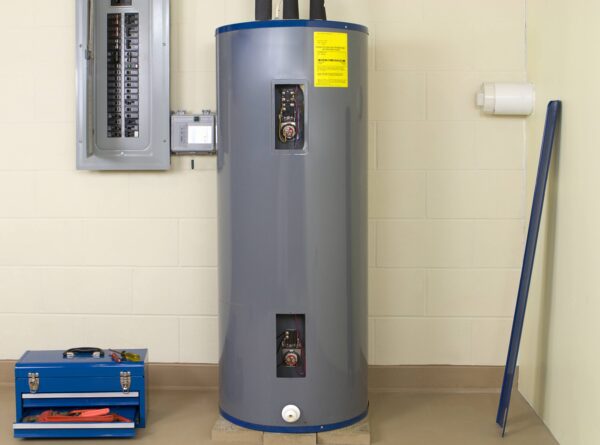
Have you ever glanced at your water heater and noticed little lights blinking on the control panel? These lights usually indicate that something has gone wrong. However, it can be tricky to figure out what these lights mean. Different models use different systems, so there are a lot of potential interpretations. Depending on the type of water heater you have, a blinking light might mean one or more of the following things.
Everything’s Normal
On some models, a constantly blinking light is actually normal. Certain brands like Honeywell have the system occasionally flash to signal that it’s working. The light just means that power is flowing to the system and it’s operating normally. Usually, the code for normal operation consists of one red light blinking every three seconds.
Your Pilot Light Is Out
If you have a gas water heater, there is supposed to be a pilot light running at all times. However, things like a draft can blow out the light. If this happens, your system might start blinking. Other signs of a blown pilot light include a lack of flame in the pilot light window and cold water in the tank. On many models, the indicator will blink eight times, followed by a short pause and eight more blinks. This can sometimes be fixed by just relighting the light, but if it frequently goes out, you may need to repair your water heater.
The Thermostat Is Broken
The thermostat in the water heater is supposed to regulate temperature. If it breaks, temperatures can go too high or too low. In some cases, this can cause the status light to start blinking blue or red. A common code for an issue with temperature regulation is four consecutive blinks every three seconds, but of course, this code can vary depending on the system.
Your Tank Isn’t Filling Up
Another potential malfunction occurs when your water tank isn’t filled. You’ll see this blinking warning whenever you first connect the tank but haven’t filled it up yet. It can also occur if your tank is somehow broken and is not refilling properly. In these cases, you might notice weird rattling noises inside your tank or puddles outside your tank.
There Are Electrical Problems
All sorts of electrical issues can lead to blinking lights. Even if you have a gas water heater, it’s normal for them to also use some electrical components, and when anything goes wrong, the light will start to flash. Some systems may flash especially rapidly for electrical issues or use a code like seven blinks in a row.
The System Is Blocked or Clogged
Your water heater is a complex system with a lot of drainage and exhaust piping. If you experience a problem like a condensate drain clog or exhaust pipe blockage, the system will usually shut down automatically to prevent any further damage. In these cases, a slow blinking light will often accompany the problem. Many models use a system of three blinks that are followed by a pause and then another series of three blinks. Some heaters, like Rheem models, may use a blinking blue light instead of a red one to indicate this issue.
You Have a Faulty Vapor Sensor
The vapor sensor on a gas heater is supposed to ensure that a low, steady stream of gas heats your water properly. Since gas can be combustible, a sensor on the machine is supposed to identify any gas leaks. However, these sensors can fail or be triggered by nearby harmless vapors like ammonia in pet urine. In addition to a blinking light, a faulty vapor sensor will also keep the heater from restarting until you replace or reset the sensor.
Sometimes, you can use your water heater’s manual to figure out the meaning of a blinking light. However, even if you know what it means, it’s not always a problem you can fix. Anytime you need help with your water heater, turn to O'Brien Heating & Air Conditioning. Our highly-trained technicians can figure out the meaning of the blinking light and help you get your system functioning properly again. In addition to water heater repairs, we also help Drexel Hill residents with a variety of other residential and commercial HVAC repairs, installations, and maintenance tasks. Give us a call today to find out more.

